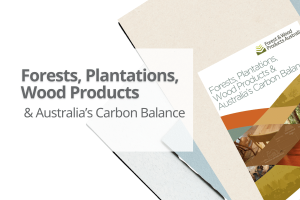Part I – Industry Benchmarking: timber and timber products
This report investigated the current due-diligence measures for illegally logged wood undertaken by twenty-eight Australian importers/wholesalers of timber products and domestic processors of raw logs. Products imported included sawn wood, engineered timbers such as LVL and I-beams, sheet of veneer, mouldings, particleboard, oriented strand board (OSB), medium density fibreboard (MDF) panels and hardboard, plywood, veneered panels and builders joinery such as doors and windows.
All companies interviewed are undertaking components of due diligence to prevent purchase of illegally logged wood when sourcing timber products for import. For example information gathering is an activity companies undertake as a normal part of their business. Amongst importers there appears general agreement of what constitutes low risk sources of wood products and what constitutes sources that are not low risk. Importers utilise Certification and a large range of 3rd party legality verification and government documentation to demonstrate legality. These practices are largely result of efforts to protect their reputation as well as market demands from key customers.
Part II – Industry Benchmarking: pulp & paper, wood furniture and other wood products
This report investigated the due-diligence practices for illegally logged wood of thirty-eight Australian importers of an additional range of wood-based products. The pulp and paper sector mainly use Chain of Custody certification to one or both of the internationally recognised standards: the Forest Stewardship Council and those endorsed by the Programme for Endorsement of Forest Certification (PEFC) including the Australian Forestry Standard.
Wood-based furniture importers relied on using single, stable reputable suppliers and regular visits to their suppliers, many of whom are also supplying European and US customers so are familiar with European Union requirements. Importers of other products, such as barrels, blinds and flooring, relied on PEFC certification and Chain of Custody certification to FSC standards.
Part III – Demonstrating legal timber – Due Diligence Tools
The project outputs for part three includes separate guidance documents and tools for importers and for domestic processors in preparation for 30 November at which time the Illegal Logging Prohibition Amendment Regulation comes into force. For importers an Australian Industry Timber Due Diligence (AITDD) system was developed, it is a comprehensive suite of specific guidance on setting up and implementing a due diligence system, and includes templates such as company manual, information gathering and risk assessment worksheets as well as a supplier questionnaire. Complementary industry information sheets provide useful plain English overviews and supplementary guidance on aspects of risk assessment and risk mitigation.
For businesses processing locally grown logs the risk of sourcing illegally harvested logs is widely recognised as being very low. The ‘Timber due diligence’ website includes a Domestic Processors Overview and a Domestic Processor Due Diligence Summary to help domestic processors document where their raw logs are coming from and that they have the relevant permission to supply logs to the processor.
All the guidance and tools are currently being made available via the web at www.timberduediligence.com.au
Reference Number:
PNA252-1112
- Findings Report Part I: Report_PNA252-1112_IndustryBenchmarking_Part_I.pdf
- Findings Report Part II: Report_PNA252-1112_IndustryBenchmarking_Part_II_final_2012_12_17.pdf
- Findings Report Part III: PNA252-1112_Part.III_final.pdf


